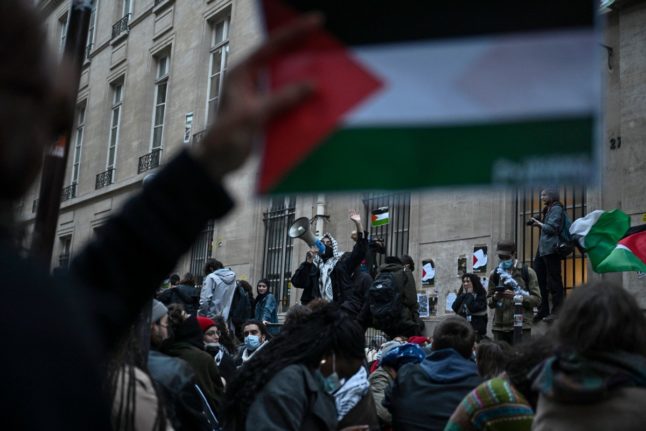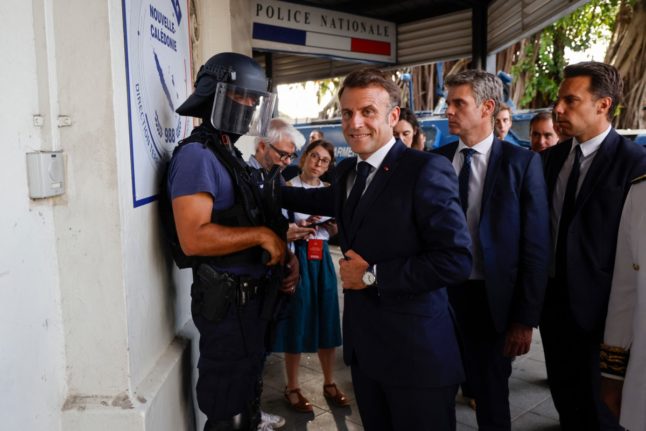In a message sent to staff on Thursday evening, its management said the buildings in central Paris “will remain closed tomorrow, Friday May 3rd. We ask you to continue to work from home”.
A committee of pro-Palestinian students earlier on Thursday announced a “peaceful sit-in” at Sciences Po and said six students were starting a hunger strike “in solidarity with Palestinian victims” in war-torn Gaza.
Sciences Po is widely considered France’s top political science school and counts President Emmanuel Macron among its alumni.
Echoing tense demonstrations rocking many top US universities, students at Sciences Po have staged a series of protests, with some furious over the Israel-Hamas war and ensuing humanitarian crisis in the besieged Palestinian territory of Gaza.
France is home to the world’s largest Jewish population after Israel and the United States, as well as Europe’s biggest Muslim community.
The Paris regional authority’s right-wing head Valerie Pécresse temporarily suspended funding to Sciences Po earlier this week over the protests, condemning what she called “a minority of radicalised people calling for anti-Semitic hatred”.
The war started with Hamas’s unprecedented October 7th attack on Israel that resulted in the deaths of 1,170 people, mostly civilians, according to an AFP tally of Israeli official figures.
Israel estimates that 129 captives seized by militants during their attack remain in Gaza. The military says 34 of them are dead.
Israel’s retaliatory offensive against Hamas has killed at least 34,596 people in Gaza, mostly women and children, according to the Hamas-run territory’s health ministry.
A member of the student committee who identified himself only as Hicham said the hunger strikes would continue until the university’s board voted on holding an investigation into its partnerships with Israeli universities.
Sciences Po’s acting administrator Jean Basseres said he had refused that call during a debate with students, held at the university in a bid to calm days of protests.
Higher Education Minister Sylvie Retailleau earlier on Thursday called on university heads to “keep order”, including by calling in the police if needed.



 Please whitelist us to continue reading.
Please whitelist us to continue reading.
Member comments